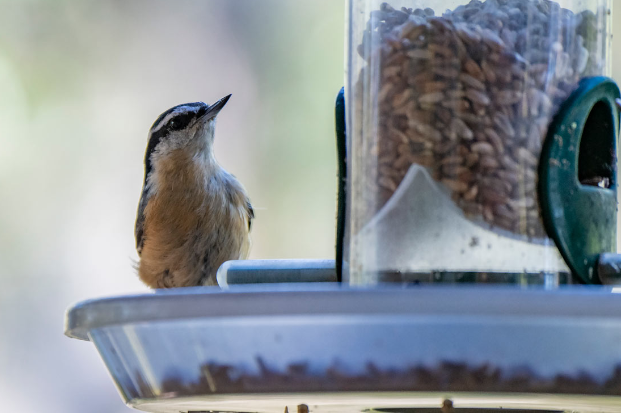
When it comes to providing a balanced and nutritious diet for your feathered friends, the choice of bird seed plays a crucial role. Among the many options available, safflower seeds stand out as a beneficial and often overlooked choice for avian nutrition. In this guide, we’ll explore the benefits of safflower seeds, how they compare to other bird seeds, and why they might be the perfect addition to your bird's diet.
The Benefits of Safflower Seeds
Nutritional Value
Safflower seeds are rich in essential nutrients that support overall bird health. They are a good source of:
- Proteins: Essential for muscle development and repair.
- Fats: Provide energy and support feather health. Safflower seeds are particularly rich in monounsaturated fats, which are beneficial for heart health.
- Fiber: Promotes healthy digestion and can help prevent gastrointestinal issues.
These nutrients contribute to a well-rounded diet that supports not only the physical health of birds but also their vitality and longevity.
Reducing Waste
One of the notable advantages of safflower seeds is that they are less likely to be wasted compared to other types of bird seed. Birds are often attracted to safflower seeds due to their rich nutritional content and taste. Moreover, unlike sunflower seeds, safflower seeds have a hard shell that is less likely to be discarded. This means more of the seed is consumed and less is wasted, making it a more efficient choice for bird feeders.
Pest Control
Another benefit of safflower seeds is their ability to deter unwanted pests. The hard shell of safflower seeds can be less appealing to squirrels and other animals that might otherwise invade bird feeders. This natural deterrent helps keep your bird fed solely for the avian visitors, reducing competition and ensuring that your birds receive their share of the nutrition.
Comparing Safflower Seeds to Other Bird Seeds
When considering bird seed options for your feathered friends, it's essential to compare safflower seeds with other common choices. Each type of seed has its own set of benefits and drawbacks:
- Sunflower Seeds: While sunflower seeds are popular due to their high-fat content and palatability, they can lead to waste because birds may discard the shells. Additionally, their high-fat content might not be ideal for all bird species, especially those prone to obesity.
- Millet: Millet is another common bird seed that is high in carbohydrates and easy for birds to digest. However, it lacks the fat content found in safflower seeds, which can be a drawback for species that require higher energy levels.
- Nyjer Seeds: Also known as thistle seeds, nyjer seeds are rich in fat and are highly attractive to small birds like finches. However, they can be expensive and are often less palatable to larger bird species.
How to Introduce Safflower Seeds to Your Bird’s Diet
- Gradual Introduction: Mix safflower seeds with your bird’s current food to allow them to get used to the new seed. Gradually increase the amount of safflower seeds over time.
- Observation: Monitor your bird’s response to the new seeds. Ensure that they are eating the safflower seeds and showing no signs of adverse reactions.
- Feeder Placement: Use a bird feeder that accommodates safflower seeds and prevents spillage. A feeder with a tray or a mesh design can help reduce waste and keep the seeds accessible.
- Balanced Diet: While safflower seeds are beneficial, they should be part of a balanced diet that includes other types of bird seed and fresh foods to ensure all nutritional needs are met.
Conclusion
Safflower seeds are an excellent choice for providing optimal nutrition to your avian companions. With their rich nutrient profile, ability to reduce waste, and natural pest control properties, safflower seeds offer numerous benefits for both the birds and the bird enthusiasts who care for them.